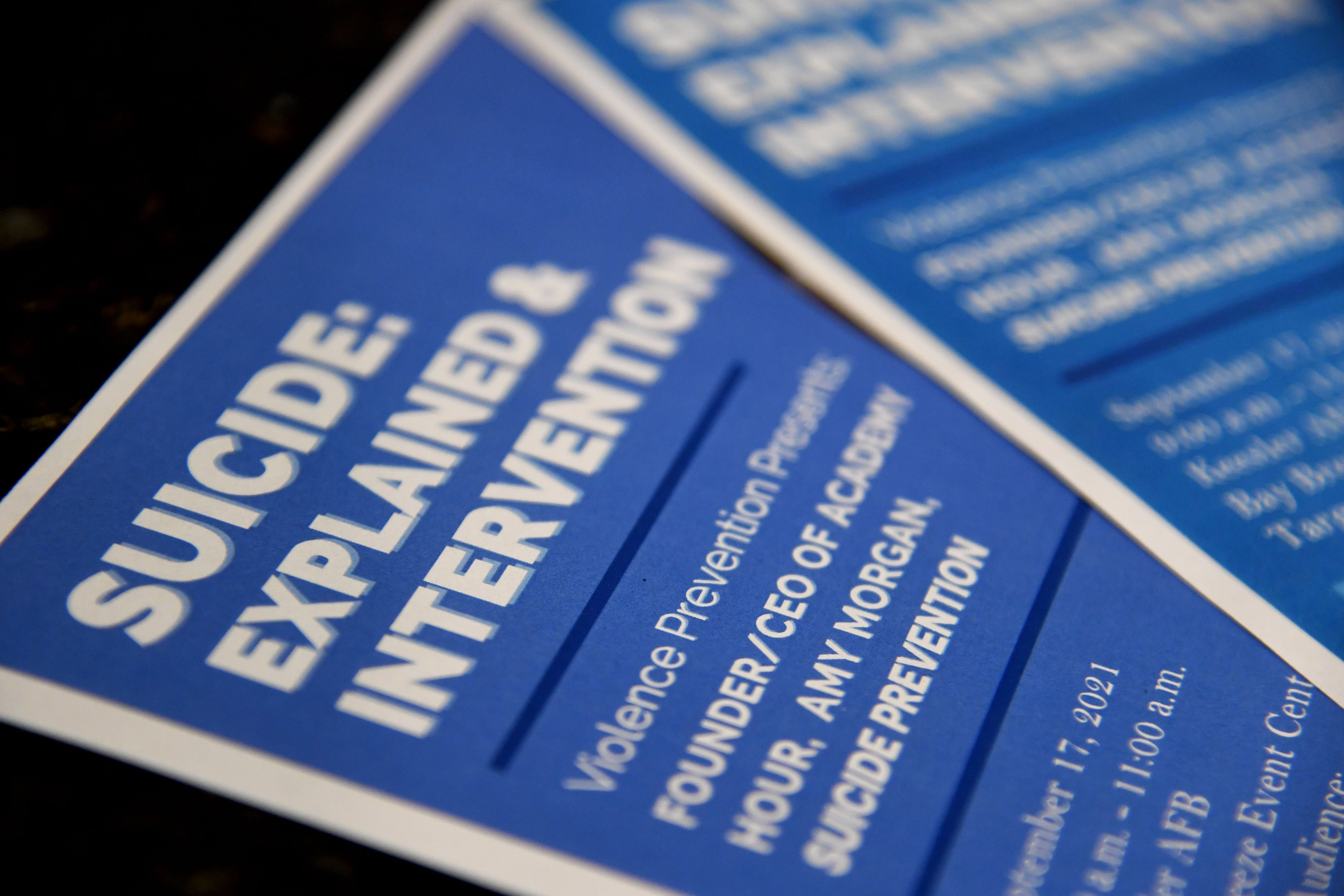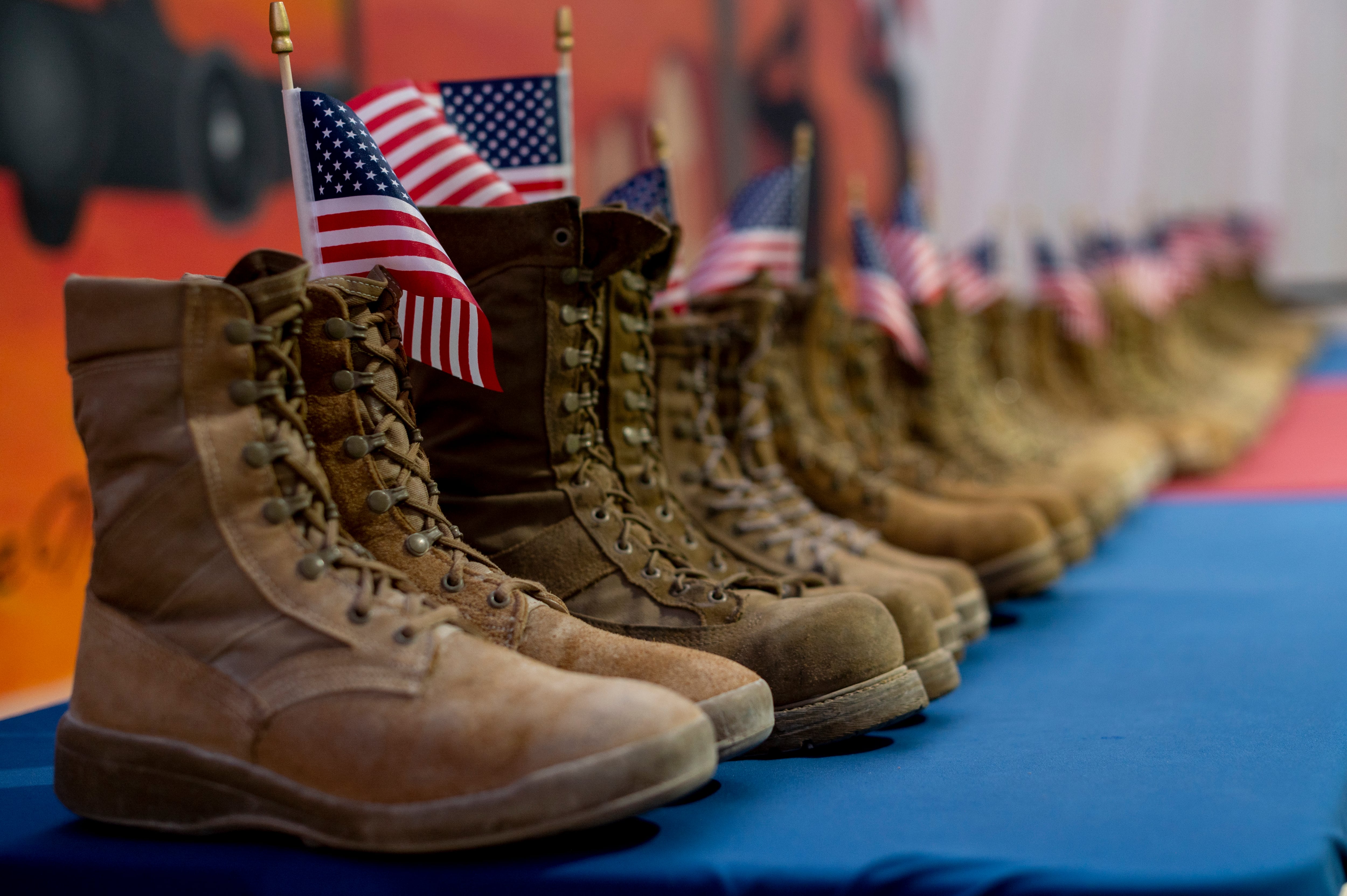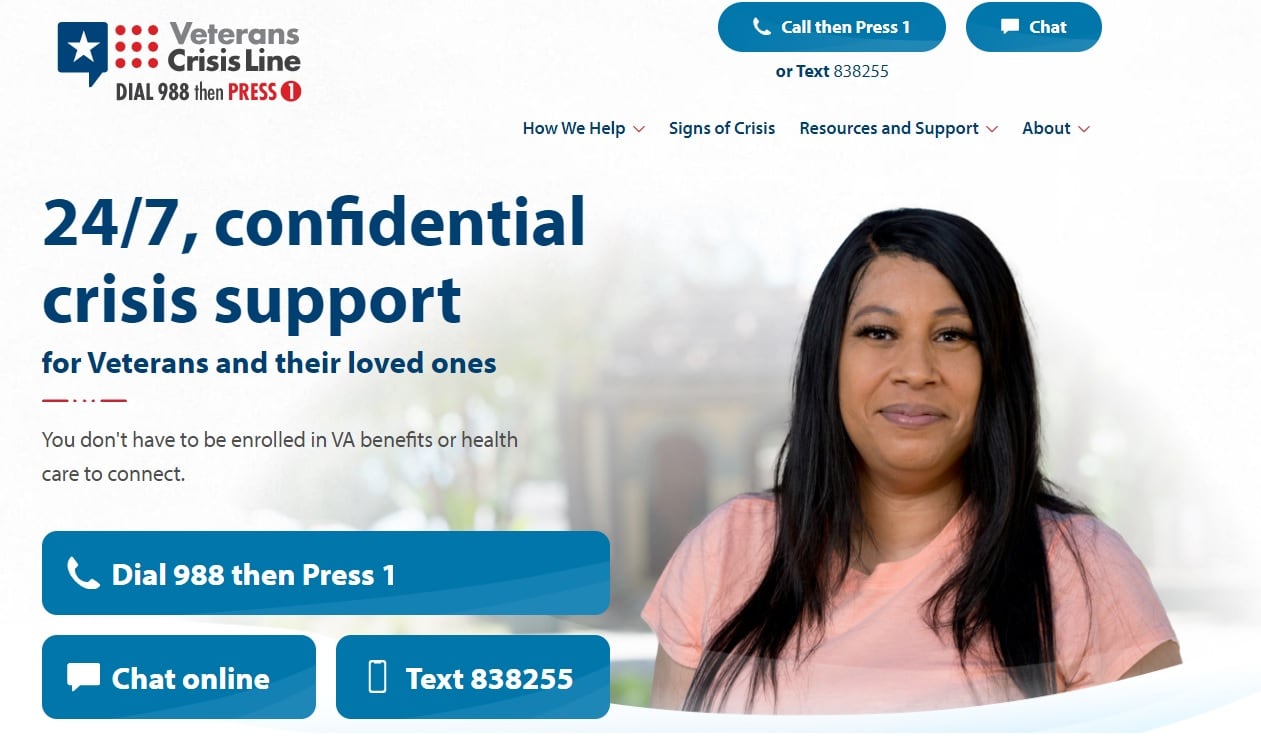Senior Air Force officials pledged to improve airmen’s access to mental health care and urged commanders to play a more active role in supporting their troops, suggesting that suicides are again on the rise.
Secretary Frank Kendall, the service’s top civilian, and Chief Master Sergeant of the Air Force JoAnne Bass, its senior enlisted leader, encouraged airmen and Space Force guardians to seek out wider support systems in a Sept. 22 question-and-answer session on Facebook.
“I think all of us, at some point in our lives, [have] had times when life wasn’t really what we wanted it to be,” Kendall said. “There are things we can do to … recognize when somebody’s having some problems, let them know that somebody cares and can reach out to them. Let them know that whatever they’re feeling right now isn’t something they’re always going to feel.”
RELATED

It’s unclear how many airmen and guardians are believed to have killed themselves in the past year. The Department of the Air Force no longer provides its annual suicide counts upon request, spokesperson Laurel Falls said Wednesday. Those figures are included in the Pentagon’s quarterly suicide updates and its annual final report.
But Kendall indicated this year’s total has surpassed that of fiscal 2021.
“We get roughly the same number each year. I think we can bring it down,” he said. “Last year was pretty good; this year’s trends are not quite as good. … If we pay attention to this as leaders, we can make a difference.”
Seventy-one troops in the active duty Air Force and Space Force, Air National Guard and Air Force Reserve died by suicide in fiscal 2021 — the lowest in at least six years, according to Pentagon data. In contrast, that number spiked to 110 airmen and guardians who died each year in both 2019 and 2020.
Relationship issues, sense of a loss of purpose and despair about quality of life and work often factor into someone’s decision to end their own life. Firearms are the leading cause of death for airmen and guardian suicides inside the continental United States, the Air Force said.
Active duty and National Guard suicide rates are comparable to those of the wider U.S. population, while the Reserve rate is lower. Most people in the Department of the Air Force who died by suicide in 2020 were single junior enlisted men between the ages of 23-30, the service said in April.
The service can’t do anything about the nationwide shortage of mental health providers that is spiking appointment wait times, but it can encourage airmen to build stronger communities.
“We can do things to help people become, basically, volunteers that people can talk to,” Kendall added. “We can do things that increase our staff, that are more efficient … and deal with the higher-priority cases faster.”
RELATED

Most people who seek mental health services need someone to listen rather than clinical care, Bass said. But she wants to improve access to therapy and other resources for people before their emotions develop into depression or anxiety. The Air Force has also been working to increase the number of victim advocates for sexual assault victims.
The service still has a long way to go in battling the perception that receiving mental health care can hurt someone’s career trajectory, particularly for those with security clearances or who carry firearms for their job.
Seeking help “demonstrates courage, maturity and judgment,” Kendall said. He said he sought out a therapist while going through a tough divorce and was better for it.
Still, Bass acknowledged that staying in the service may cause more harm than good for people who are deeply struggling.
“The truth is that some people, for the sake of their health, probably should take this uniform off,” she said. “We care more about their life.”
Leaders up the chain of command need to set better examples of mental health and balanced lives, they said. At the same time, it’s also up to frontline supervisors and other managers in units across the force to create a healthy culture.
RELATED

One questioner urged the Air Force to offer leaders more guidance on what to do in the aftermath of a suicide.
“My airmen saw a three-day shutdown for an aircraft mishap and only one day of no flying for a suicide,” she said. “We need a mechanism for assessing psychological safety and ‘postvention.’ ”
Bass pointed the audience to the resources available on the Air Force’s emotional resilience website. She and Kendall also stressed the importance of continuing to grow as a leader and learning to take care of others throughout a military career.
The Air Force is also looking at ways to better gauge whether an organization is safe and healthy for airmen.
“We’ve been in a few meetings as of late to talk about the need to have more effective and responsive ways to … get data from our service members on what is quality of life like?” Bass said.
They’ll likely turn to microsurveys, or quick polls that take the pulse of a unit’s climate. But those don’t work unless enough airmen respond and are honest, Kendall added.
“It’s hard to manage something if you don’t have good data, particularly in an organization as large as the Department of the Air Force [or] Department of Defense,” he said. “Getting that feedback allows us to make better decisions and put better policies in place.”
RELATED

The leaders urged commanders to work with their subordinates who are going through a tough time rather than resorting to punishment. Poor performance, lack of motivation and other problems can be telltale signs of burnout or depression, but can lead to disciplinary paperwork.
“One of the contributors to suicide is people who are under investigation for disciplinary issues,” Kendall said. “Give them a chance to correct the problem or deal with the problem and then see if the performance goes up before you take a harsh disciplinary response.”
Bass also suggested that people write down the phone numbers of three people they can call in their darkest moments — before those moments are upon them.
“There is always somebody who can help you,” she said. “If you come up with your plan at your lowest moment, or when you’re in crisis, it’s probably not going to be a great plan.”
If you are experiencing suicidal thoughts, you can reach the 24-hour Suicide and Crisis Lifeline by dialing 988 or 1-800-273-8255. Veterans, troops and their family members can also text 838255 or visit VeteransCrisisLine.net for assistance.
Rachel Cohen is the editor of Air Force Times. She joined the publication as its senior reporter in March 2021. Her work has appeared in the Washington Post, the Frederick News-Post (Md.), Air and Space Forces Magazine, Inside Defense, Inside Health Policy and elsewhere.





